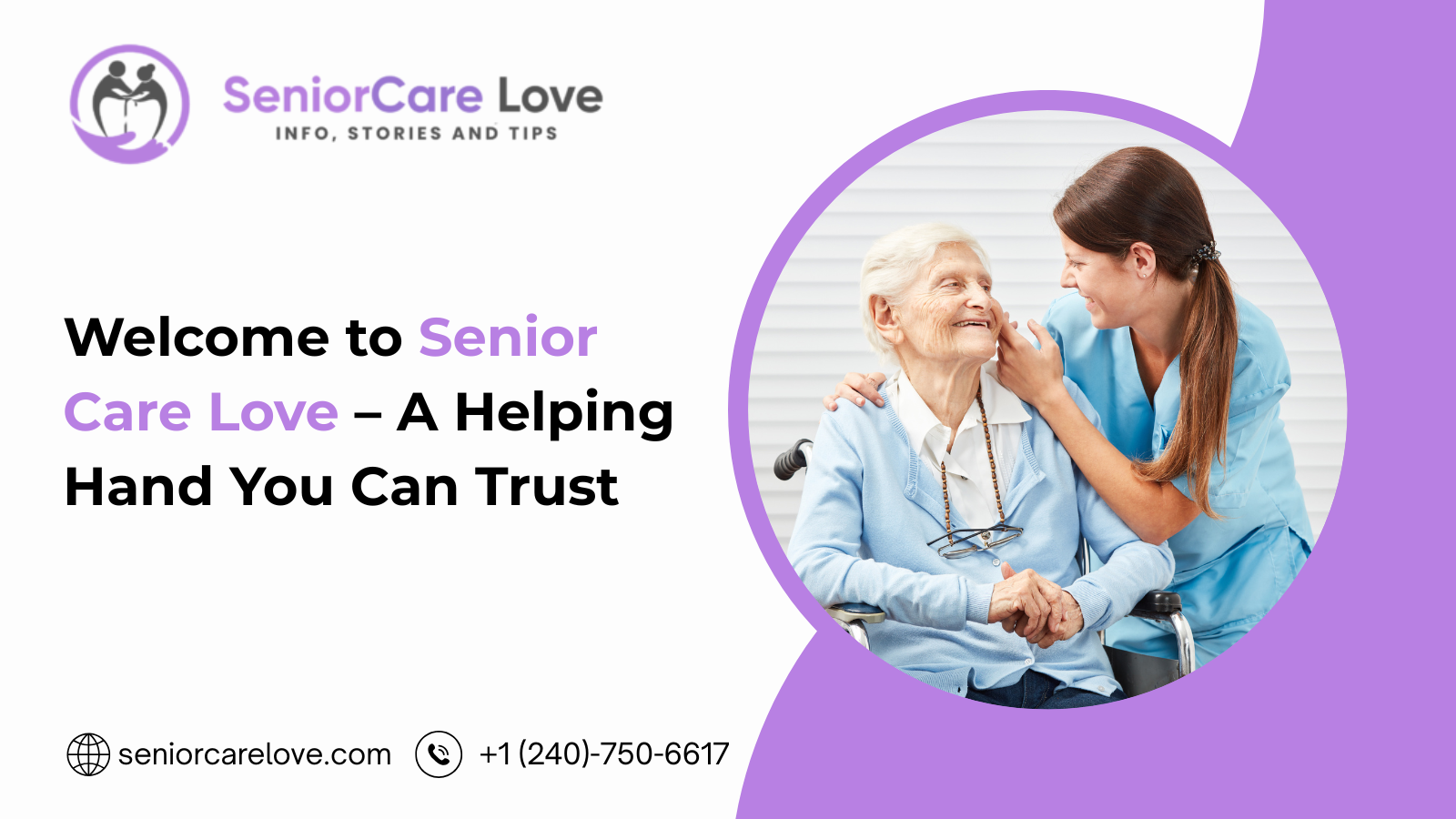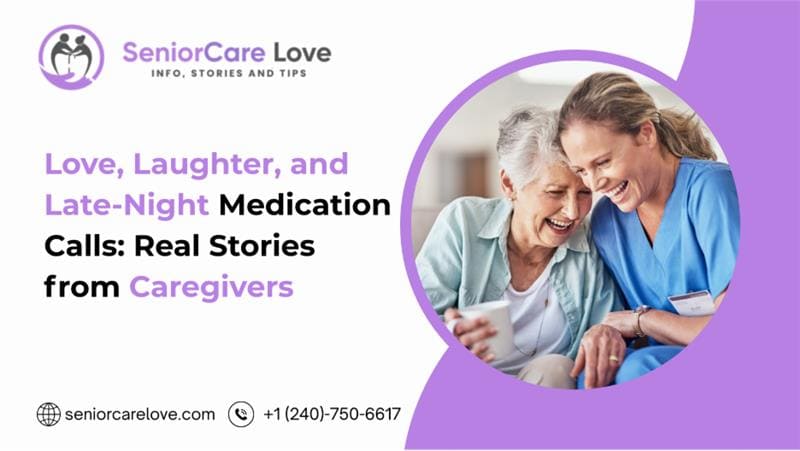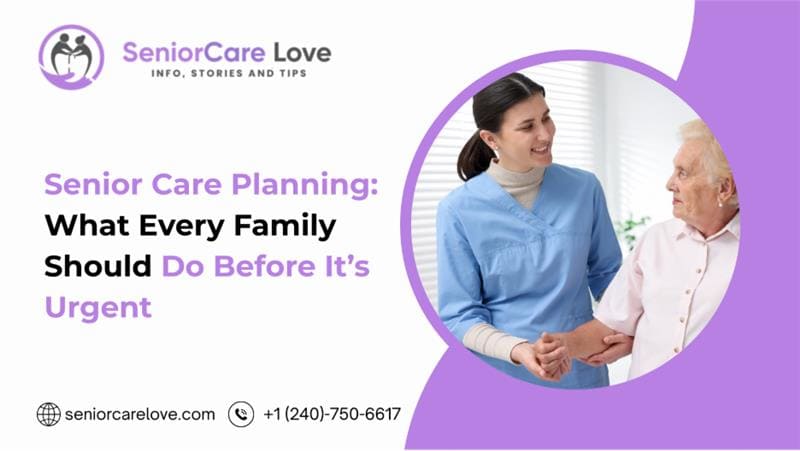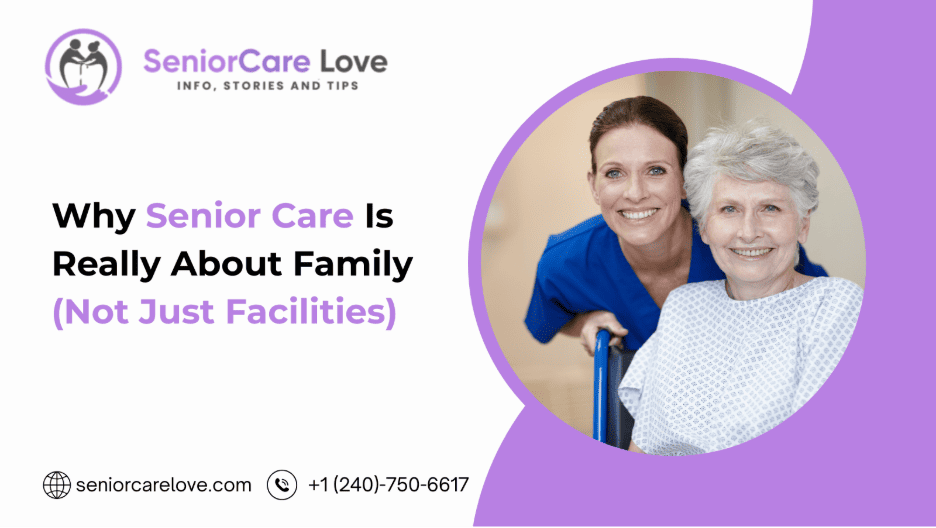There’s something uniquely humbling about caregiving—especially when it involves helping someone who once grounded you for sneaking out past curfew. Now you’re the one reminding them to take their meds, eat their vegetables, and avoid watching true crime documentaries before bed.
Welcome to caregiving in Maryland and DC—where the Beltway never sleeps, and neither do many family caregivers.
Whether you’re caring for a parent in Potomac, a spouse in Silver Spring, or a beloved aunt in Anacostia who still insists on driving to Giant “just for the fun of it”—we salute you. It’s not easy, but it’s deeply meaningful. And we’re here to help you do it with a little more clarity, a bit less panic, and—because it’s us—a healthy dose of humor.
Let’s get into our top caregiving tips, specially tailored for families in the DMV (that’s DC–Maryland–Virginia, not the place where happiness goes to die).
1. Know the Lay of the Land (Literally)
Caregiving in Maryland and DC isn’t just about love and logistics—it’s about geography. That 4-mile trip to the pharmacy can take 40 minutes if you hit rush hour or a rogue motorcade. And yes, we’ve been stuck behind both.
Your move:
- Get to know your neighborhood resources: senior centers, urgent care, memory cafés, and respite programs.
- Bookmark area-specific services like Maryland Access Point (MAP) and the DC Office on Aging.
- Don’t underestimate the power of a well-timed Wegmans run (for you and your loved one).
Pro tip: If you live in Montgomery County, congratulations—you have more senior-friendly programs than most small countries. Use them.
2. Don’t Be a Hero (Unless You’re Wearing a Cape)
There’s a reason airlines tell you to secure your own oxygen mask first. Burnt-out caregivers help no one—and we mean no one. If you’re running on fumes and cold brew, it’s time to delegate, nap, or cry in your car for 15 minutes (we’ve all been there).
Your move:
- Accept help. Actually accept it. (No, we’re not yelling. Just gently emphasizing.)
- Consider adult day care programs or in-home help through local agencies.
- Schedule respite care—even if it’s just so you can binge-watch something that doesn’t involve medical drama.
3. Talk About The Tough Stuff (Before It Gets Tougher)
We know—talking about wills, power of attorney, and “what happens if” scenarios makes Thanksgiving dinner a little…tense. But not talking about it? That’s worse.
One family we worked with waited until Mom’s hospital discharge to ask, “What does she want?” The answer? Apparently, a margarita and zero paperwork.
Your move:
- Have “the talk” early—and revisit it annually.
- Set up legal documents while your loved one can still participate in decisions.
- Use a local elder law attorney (trust us, not just “your cousin who’s good at taxes”).
4. Create a (Loosely) Organized System
Post-it notes are not a care plan. Neither is “just remembering stuff.” If your fridge looks like a CIA evidence board and your pill organizers have pill organizers—you may be due for a little structure.
Your move:
- Use a binder or digital system for medications, appointments, insurance, and contacts.
- Keep copies of ID, insurance cards, and legal documents on hand.
- Use a shared digital calendar if multiple people are helping (bonus: fewer “Wait, who’s driving today?” moments).
Sidebar: We once met a daughter who created a spreadsheet so robust it auto-texted medication reminders. She now consults for Silicon Valley startups. Coincidence? We think not.
5. Embrace Local Flavor (And We’re Not Just Talking About Old Bay)
From Smithsonian strolls to waterfront picnics, this region offers plenty of low-cost, memory-making experiences. Senior-friendly yoga on the National Mall? Check. Garden therapy in Columbia? Double check. Bingo in a converted church basement? Triple check—with snacks.
Your move:
- Plan regular outings that feel like life, not chores.
- Check with your local Area Agency on Aging for events and programs.
- Try one new thing a month—board game café, farmers market, musical therapy.
Warning: If you take your mom to the Kennedy Center once, she will expect season tickets.
6. Use Technology (But Don’t Let It Use You)
We love a good GPS pillbox or a fall alert app that actually works. But some “tech for seniors” is just…a smart toaster wearing a lab coat.
Your move:
- Stick to what actually helps: medication reminders, telehealth access, grocery delivery.
- Teach your loved one how to use a tablet or phone (patience, deep breaths, snacks).
- Avoid gadget overwhelm. You don’t need 12 apps and a drone to manage caregiving.
7. Remember: You’re Still Family, Not Just a Care Manager
When you spend 90% of your time monitoring blood pressure, refilling prescriptions, and decoding long-term care policies, it’s easy to forget you were once just a daughter, spouse, niece, or friend.
Your move:
- Schedule “non-care” time. Watch a movie. Bake cookies. Laugh at nothing.
- Don’t feel guilty taking a break from caregiving. Feel proud for showing up at all.
- Let some things slide. (Unless it’s the laundry. Mold waits for no one.)
Final Thought
At Senior Care Love, we always say: Caregiving is the hardest job you didn’t apply for—but the one that matters most. Whether you’re in Laurel or Logan Circle, caregiving here comes with its own rhythm, resources, and realities.
So give yourself grace. Take the help. Laugh when you can (often, we hope). Cry when you need to. And remember that in the middle of all the logistics, what you’re really giving… is love. Sometimes in the form of mashed potatoes, sometimes as a midnight medication run, but always—always—as love.
And hey—if you need help, support, or just a human who gets it? That’s what we’re here for. With warm hearts, practical advice, and the occasional joke about traffic on the Beltway.
FAQs
Q: Are there caregiver support groups in Maryland and DC?
A: Yes, and they’re fantastic. From virtual meetups to in-person gatherings, support groups offer advice, connection, and occasionally, cookies. Check with the DC Caregiver Support Program or Maryland’s Department of Aging.
Q: How can I find in-home care services near me?
A: You can search through Maryland Access Point (MAP), the DC Department of Aging and Community Living, or work with a senior care advisor who knows the local landscape (like us… hint hint).
Q: What if I’m caring from a distance?
A: Long-distance caregiving is tricky, but doable. Hire local help, use tech for updates, and visit when you can. Build a local support team—and stay connected with regular calls or video chats.
Q: How do I know if my loved one needs more care than I can provide?
A: Warning signs include medication mismanagement, unsafe mobility, isolation, or frequent hospital visits. If you’re unsure, a care assessment from a professional can help clarify the next step.







